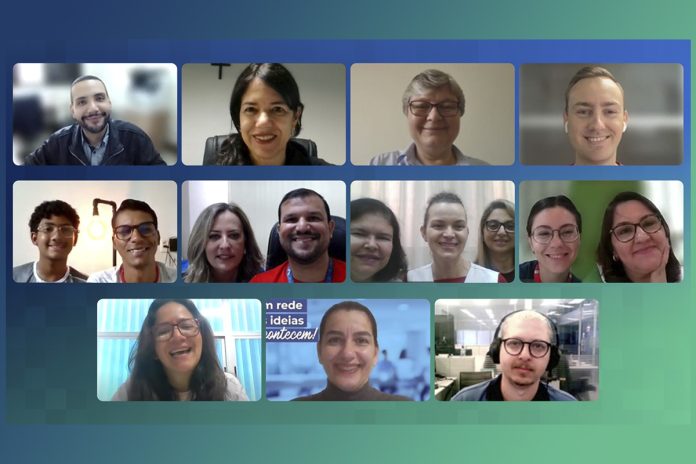Brazil. On 4 and 5 November 2024, the Salesian Network Brazil (RSB) held its 2nd online seminar on good practices in Educommunication addressed to leaders, educators, and students of the Salesian presences in Brazil. The aim is to disseminate the existing practices of Educommunication in RSB institutions, as well as to strengthen local educative ecosystems and encourage the ongoing formation of teams.
The Seminar, organized by the Provincial Communication Coordinators’ Committee, with the support of Sister Maike Loes and the RSB Head of Formation Projects, Ana Paula Costa e Silva, has its roots Salesian pedagogy: Educate communicating, communicate educating.
This year, 42 good practices were received and evaluated by a qualified team of professionals from the education, communication and Educommunication sectors. The online event will present ten innovative good practices that are developing in different RSB presences.
Five significant practices were presented on 4 November, including:
– AUXICAST, a podcast produced by the Colégio Auxiliadora in Recife, to connect students and community through digital communication.
– The Reading Incentive Movement OSAF (MILO), promoted by the Obra Salesiana de Apoio Fraterno of Araras, San Paolo, which aims to awaken love for reading among young people by creating literary spaces and facilitating access to books.
– KombiCast, of Casa do Puríssimo in Guaratinguetá, São Paulo, a creative initiative that uses a Kombi transport and the podcast format to encourage young people to communicate and express themselves.
– The project Experiences of religious education at Mary Help of Christians Institute in Goiânia, offers activities that integrate spiritual values into the daily lives of students, promoting ethical and moral reflection.
– Young Communicators, of São Joaquim College in Lorena (SP), provides students with tools to produce content, develop critical communication skills and social awareness.
Five other practices were shared on 5 November:
– The project I, you… WE: paths that are built, developed by the São José Institute in São José dos Campos, São Paulo, involves the creation of a book of poems and embroidery works, reviving traditional techniques and involving families and their stories. In addition to fostering artistic expression, the project aims to strengthen interpersonal and intergenerational relationships.
– The Collective ECOAR, of the Abequar Institute in Linhares, focused on youth leadership and education through communication and art, using conversation circles and creative workshops.
– The project From paper to life: a practice that makes the difference, of the Salesian High School Nossa Senhora Auxiliadora in Campinas, São Paulo, encourages the practical application of scholastic knowledge, promoting a connection between theory and reality, with positive effects on the commitment of the students.
– The project The dream that makes us dream – Don Bosco’s lesson for our days, of Don Bosco Salesian School in Salvador de Bahia, approaches the teachings of Don Bosco and their current relevance.
– Linking of knowledge, of the Salesian School in Brasília, was presented as an initiative that integrates knowledge and practice, promoting student leadership and social inclusion.
The selection of good practices was entrusted to an evaluation committee composed of Sister Maike Loes, FMA, National Communication Coordinator for the RSB; Valéria Rodrigues, Coordinator of the Schools of Mary Help of Christians Province of Recife (BRE); Ana Paula Costa e Silva, Head of Formation Projects for the RSB; Sister Mercedes Méndez Siliuto, Communications Manager for the Congregation of the Sisters of the Assumption, Spain; Professor Rosane Rosa, from the Federal University of Santa Maria (UFSM) and Prof. Clériston Ramos, SiB/FURG librarian.
The 42 reports of good practices submitted were examined on the basis of the following criteria: evidence of the educative dimension; relationship between the practice and the Salesian educative mission; participation and commitment of the Educative-Pastoral Community; the scope and range of the practice; the social relevance of the results obtained.
At the end of the event, RSB reaffirmed its commitment to promoting inclusive and transformative communication, reinforcing the idea that communication is essential for social change. Sister Maike Loes congratulated the protagonists of the good practices shared during the seminar and stressed that “young people have dreams: one of them is to have an impact on the world through communication. […] protagonism is theirs, of the young people.”
The educative-pastoral communities of all Salesian presences will have the opportunity to review the presentations made during the two days of the Seminar and know the details of all the reports of good practices sent by the presences in a virtual room of the Seminars of Good Practices of Educommunication.



















